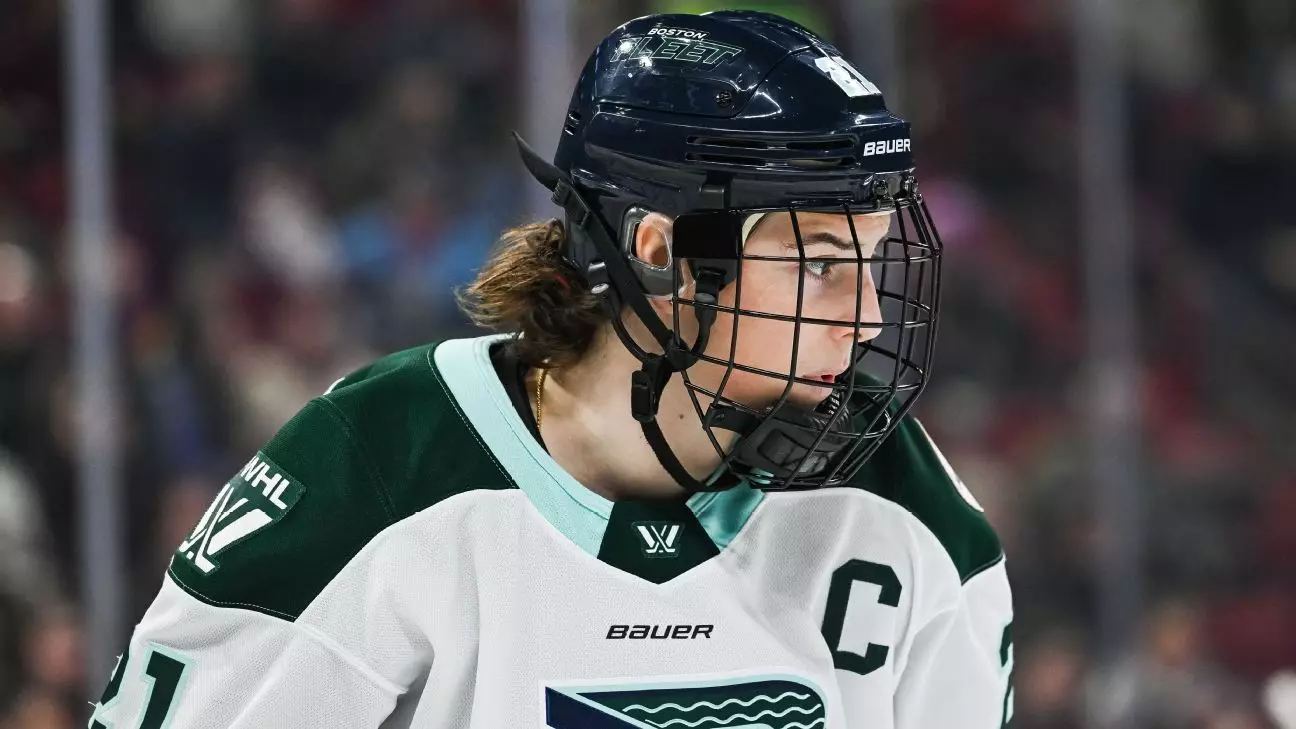The recent hiring of Kris Sparre as the second head coach in Boston Fleet’s history marks a pivotal moment that signals a shift in both the team’s strategic direction and the league’s broader trajectory. Sparre’s appointment, despite his lack of direct experience in women’s hockey, underscores a willingness to embrace fresh perspectives and unconventional leadership styles. This decision challenges traditional expectations of female representation in coaching roles, highlighting the franchise’s focus on innovation, adaptability, and a forward-thinking mindset.
In an environment where only two women hold head coaching positions among the PWHL’s eight teams, Sparre’s hiring invites a broader discussion about gender parity and leadership diversity. While critics might argue that this move overlooks the importance of women in coaching roles, it also could be seen as an attempt to bring diverse experiences into a rapidly developing league. Sparre’s evident passion and belief in the league’s growth indicate that success will be measured by results on the ice and, perhaps more crucially, by how these decisions influence the league’s cultural landscape.
From the AHL to the PWHL: A Calculated Bet on Potential
Sparre’s background is unconventional for a women’s hockey coach – predominantly anchored in the men’s development leagues and European professional hockey. This unconventional pathway should not be underestimated; it reflects a broader trend of cross-pollination in hockey coaching, where skills from men’s leagues are increasingly being adapted to foster growth in women’s sports. His tenure as an assistant coach in the AHL, a league where performance balances intense competition and player development, offers him a lens that could prove invaluable for the Fleet.
Given the pressure to not only contend for championships but also nurture talent in a league that is still carving out its identity, Sparre’s experience could provide a unique edge. His relationship-driven approach and reputation as an active communicator align with modern coaching philosophies emphasizing player empowerment and trust-building—elements critical for blending veteran influences with emerging talent. The challenge lies in translating these skills seamlessly into a women’s hockey context, a nuance Sparre will need to master quickly to foster a competitive and cohesive team.
Rebuilding a Roster with Eyes on the Future
The Fleet enter a new chapter with the daunting task of replacing a legendary figure—Hilary Knight—whose leadership and performance left an indelible mark on the league. Losing a captain and league MVP finalist signifies a significant roster shift that demands not only strategic acquisition but also cultural reinvention. Sparre’s role extends beyond tactical adjustments; it involves establishing a team identity that can thrive without their former centerpiece.
Remaining players from the inaugural finals roster represent a foundation of experience and resilience, but the team’s success hinges on how effectively Sparre can cultivate new leaders and integrate emerging talent. His ability to foster relationships and energize players will be tested as he works to create a winning culture in Boston. Ultimately, Sparre’s success—or failure—will be judged by his capacity to elevate the roster’s collective performance and inspire a new generation of players eager to compete at the highest level.
The Implications for Women’s Hockey Leadership
By selecting Sparre, the Boston Fleet stand at the crossroads of tradition and transformation within women’s hockey’s leadership landscape. Skeptics might question whether this decision perpetuates existing gender dynamics or accelerates progress by embracing a different type of expertise. Either way, it sparks a crucial debate: should innovative coaching approaches trump gender experience when building competitive teams?
This hiring underscores an emerging reality that leadership in sports, especially in nascent leagues like the PWHL, may need to transcend conventional norms. Sparre’s case exemplifies a broader trend where diverse coaching backgrounds and unconventional paths could become the norm rather than the exception. His journey exemplifies the evolving nature of sports leadership—where passion, communication, and strategic vision hold more weight than traditional credentials alone.
Ultimately, Kris Sparre’s appointment is not just about filling a coaching position; it is a bold statement about the league’s future direction. Whether he becomes the catalyst for transformation or a cautionary tale depends entirely on the results he cultivates on the ice and how effectively he can forge a new legacy in women’s hockey.


Leave a Reply